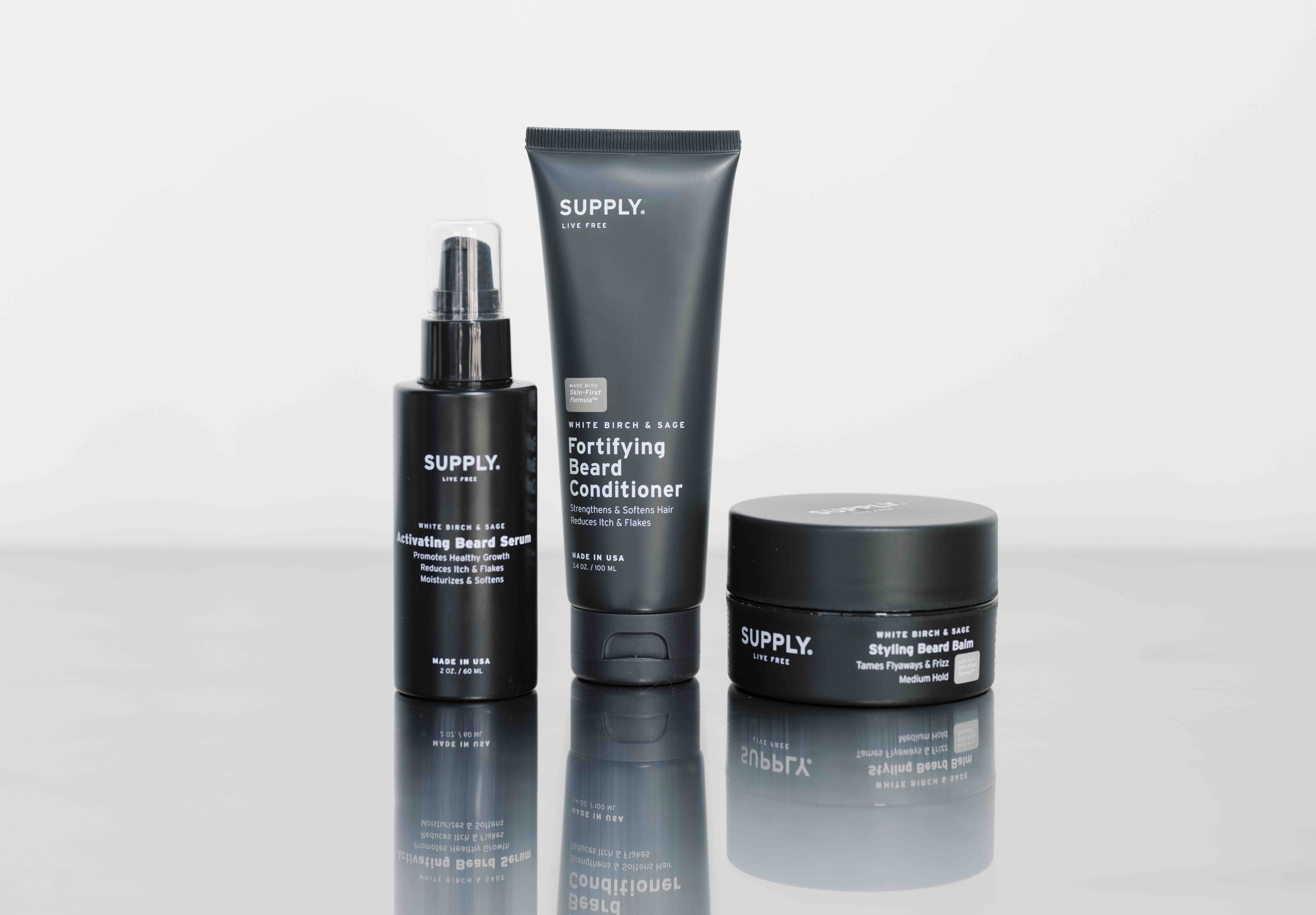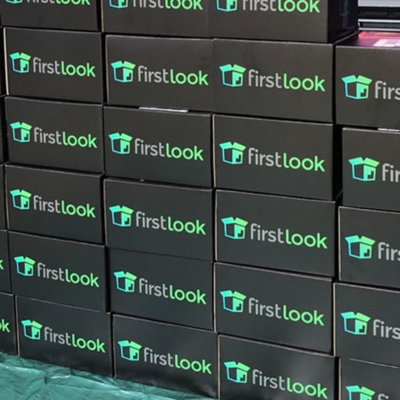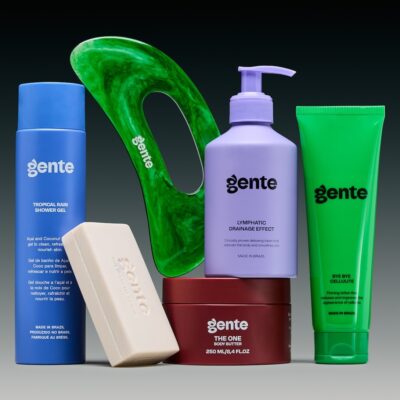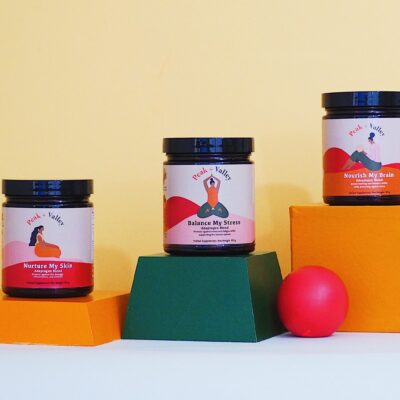
Foundry Acquires Shaving Brand Supply, Readies To Broaden Its Distribution And Assortment
In the shaving market, Unilever’s takeover of Dollar Shave Club in 2016 and Procter & Gamble’s pickup of Bevel creator Walker & Co. two years later were splashy deals, but they haven’t resulted in the desired positive ripple effects for their acquirers.
Foundry’s purchase of Supply is less splashy, but the brand acquisition platform and the safety razor specialist believe it could eventually make bigger waves. Terms of the transaction weren’t disclosed. Founded in 2015 by married couple Patrick and Jennifer Coddou, Supply’s sales have been increasing at a double-digit annual clip, and it’s profitably generated high seven-digit turnover predominantly through the direct-to-consumer channel. It will be widening its distribution and assortment in a bid to boost revenues 10X or more in the coming years.
“This is a really hard space to play in. We’ve accomplished something really significant and meaningful here, and I’m really proud of what we’ve built. Foundry is going to take us to the next level and see our success through,” says Patrick Coddou. “The other entrants are all significantly larger, but, from a value perspective, they haven’t created enterprise value for their acquirers and shareholders. We’ve created value for my family, and we are going to create enterprise value for Foundry and shareholders moving forward.”
Despite the likes of Dollar Shave Club and Bevel shaking up the shaving market, which is projected by the firm Prescient & Strategic Intelligence to advance at a compound annual growth rate of of nearly 1% in the United States to go from almost $2.8 billion in 2021 to $3 billion in 2030, Matt Rhodes, co-founder and chief development officer at Foundry, is confident there remains room for disruption. He says, “The customer base is looking for new ways to elevate their shaving experience, and that’s what Supply offers. It offers that elevated experience to do what’s been done for centuries in a better way.”

Like countless entrepreneurs, Coddou, a former mechanical engineer at Lockheed Martin, started his business because of a personal issue. Multi-blade razors tore up his face. “I literally got so sick of it that I tried to figure out a way to solve it myself,” says Coddou. “I realized that there were a lot of people like me, and many of them had found this old-school style of shaving using a single-blade razor, and I fell in love with it.”
Supply ventured to Kickstarter for money to develop and bring its single-blade razor to market. Overall, it’s embarked on Kickstarter campaigns for four projects and pulled in around $500,000 from the campaigns, according to Coddou, who says, “We would not exist without Kickstarter.” In 2019, Supply appeared on “Shark Tank.” Although it scored a deal from Robert Herjavec on the show, it later didn’t finalize the deal and was bootstrapped until selling to Foundry.
Today, Supply has 15 products encompassing razors, shaving cream, post-shave spray, shave brush and skincare, including a face wash, moisturizer, eye cream and face scrub. Its razors The Single Edge SE and The Single Edge Pro are bestsellers. While the $59 upfront price for The Single Edge SE is much greater than the price of a disposable multi-blade razor, Coddou points out shaving is ultimately cheaper for Supply customers. After buying The Single Edge SE, he estimates customers spend $12 to $24 a year on Supply blade replacements versus that amount monthly for disposable razors.
“The customer base is looking for new ways to elevate their shaving experience, and that’s what Supply offers.”
Coddou is eager to put Supply in retailers. He and Rhodes mention Target, Walmart and Nordstrom as possibilities. To date, Supply’s physical footprint has consisted of independent barbershops and international stores. Bootstrapping made it difficult for the brand to swing the investment involved with entering major retailers. To fuel the business at retail and elsewhere, Coddou began hunting for a financial partner. Talks with Foundry were initiated in the summer of last year, but Supply was busy at the time confronting soaring advertising and freight costs. Talks reignited in the spring of this year, and the deal was closed last month.
“As a founder, it’s your personal money. As you are growing, you are throwing more cash on the fire, and it just became hard to keep up with on a personal level,” says Coddou. “Our biggest challenge has been that, if we run out of stock, it’s not usually because we have supply chain issues. It’s because we should have placed a purchase order sooner.”
He stresses building a “healthy, profitable business” was a critical factor in securing Supply’s sale. In an interview with e-commerce strategist Andrew Faris for “The Andrew Faris Podcast,” Coddou shared that he improved Supply’s margins to 75% from 40% to 50%. Coddou tells Beauty Independent, “Unless you are talking about a $100 million business, no one is paying revenue multiples for a business, they are paying profit multiples.” Another critical factor was having a defensible position in the market. Coddou emphasizes Supply isn’t simply pumping out me-too multi-blade razors.

“We survey our customers, and 30%-plus of our customers experience the same problem I do. They can’t shave with a multi-blade razor,” he says. “There is a large category of men being left behind by the bigger guys. We see our advantage in the guys the behemoths have forgotten.”
Under Foundry, Supply’s first steps will be launching on Amazon and introducing beard products. The beard products are due out in October. Body care and haircare are in the product pipeline as is a foray into women’s merchandise. Supply will be up on Amazon in a week with non-razor products such as its post-shave spray and shaving cream. It expects the e-tail giant to be a strong sales driver.
Coddou says, “Primarily, we are intending Amazon to be lower AOV- [average order value] and single product-focused, whereas on our website we are great at selling bundles and packages for people who want the whole experience.”
“We see our advantage in the guys the behemoths have forgotten.”
Foundry was established 18 months ago with $100 million in equity capital from Monogram Capital Partners and LightBay Capital. It focuses on the personal care, home, pet and outdoors categories, and currently has eight brands in its portfolio. Rhodes projects the company could reach 30 to 50 brands across its four focus categories. “If you try to do everything and operate 100-plus brands, you are going to be mediocre,” he says. “We prefer to be great at a lower number of brands.”
Initially, Foundry cast a broad net for brands ranging from $1 million to $50 million in size, but principally zeroed in on brands at the smaller end of the size spectrum. It’s since set its sights on higher volume brands. Rhodes identifies profitable, growing brands with $10 million in revenues as its sweet spot.
“We deliberately wanted to buy smaller brands so that we could test and refine our strategy, and that’s easier to do at a smaller level. Now, we’ve had a lot of those strategies refined,” he says. “It takes the same manpower and cost regardless of whether it’s a $1 million or $10 million brand. From our perspective, acquiring larger brands is the best way to create the largest impact.”

Amazon brand aggregators raised over $12 billion in 2021 following Amazon’s and e-commerce’s explosion at the outset of the pandemic. Recently, the sector has been cooling off as Amazon and e-commerce sales slow. Some aggregators have paused acquisitions, laid off employees and been slammed for not being able to amplify brands post-acquisition.
Rhodes reports Foundry is an exception and has achieved double-digit growth in 2022. Roughly 100 people work at the company. Foundry isn’t an Amazon brand aggregator, but could be characterized as an e-commerce brand aggregator. However, Rhodes prefers not to use the term “aggregator.”
“The business model of operating brands under a shared portfolio with different skill sets has been around for over 100 years. Estée Lauder, L’Oréal and LVMH have all been operating lots of brands and leveraging a shared skill set,” he says. “I look up to all of those companies, and I hope that, in a few years, Foundry is viewed along with Estée Lauder, L’Oréal and LVMH. The only difference is the skill set.”
Coddou is staying on board at Foundry as is Supply’s entire 14-member team. “My vision is to do all the things I’m good at and love doing, and get all the things I’m bad at off my plate. I’m sticking to strategy, product and brand building,” he says. “They’ve already come in and taken over a lot of things—freight, purchasing, accounting, Amazon, all the mechanics that are going to be required to take us from where we are now to 10X the size.”




